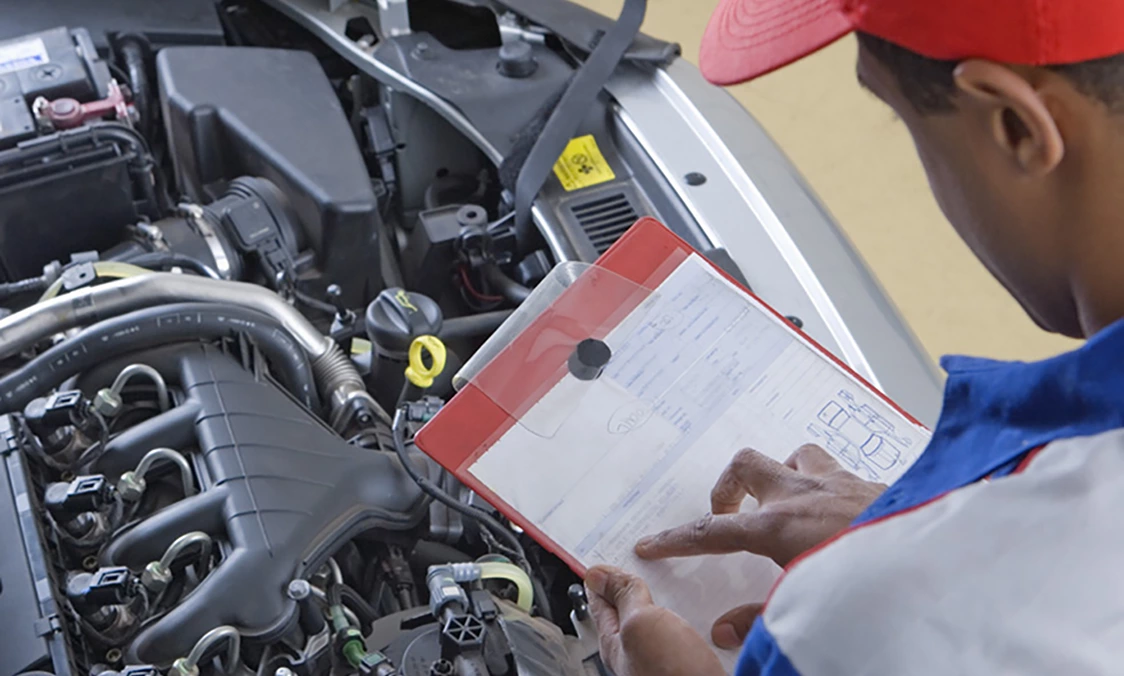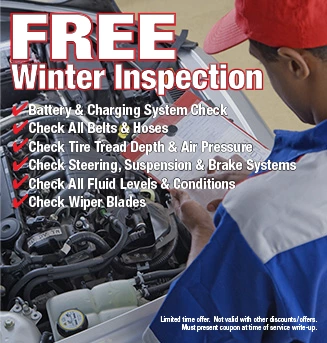Weather Station on Wheels (Vehicle Sensor Maintenance)
February 5, 2023
You probably never thought about it, but your vehicle is like a rolling weather station. It can check the outside temperature, let you know when the roads are slippery and help you deal with rain. And how it does all those things is pretty cool.
First, just like any weather station, a vehicle has sensors that measure the driving and weather conditions you find yourself in. Some of those sensors can control computerized systems in your vehicle to react to the weather. It depends on whether you have a 2-wheel, 4-wheel or all-wheel drive vehicle how those sensors will respond.
Let's start with temperature. Most vehicles now have a thermometer that measures the temperature outside. It's usually in the front, and likely will tell you on the instrument panel what the outside temperature measures. But a temperature sensor will also tell your vehicle's computers to turn on or off certain systems like the heating or air conditioning. If your ambient temperature sensor isn't working right, some symptoms are a malfunctioning automatic A/C or a temperature display that is way different than the app on your phone says it should be.
Your vehicle will also have sensors that measure your speed at each wheel. They work with an onboard computer to measure slippage in any of the wheels so traction control and antilock brakes work correctly in case of slick roads.
Your vehicle can measure something called longitudinal and latitudinal acceleration, and it uses a yaw sensor to do it. That helps it determine if you might be in an oversteering or understeering situation. It's important because it works with your vehicle's brakes to apply stopping power to keep you in control.
A steering wheel sensor tells the vehicle's computers what the driver is doing with the wheel. It also can work with those wheel sensors to measure how slippery the roads are, whether it be due to a wet (rain) or granular (gravel or sand) surface. By sending different torque or braking to each wheel, it helps the driver maintain control.
More and more vehicles now have a rain sensor that can turn on the wipers automatically when they measure precipitation on the windshield.
So, you're driving your own weather station, and making sure all this data is coming in properly depends on how each component is working. Regular service and maintenance on these systems is important to make sure they can do their job. Your rolling weather station can't predict the weather, but it can sure help you deal with it, so help it do its job right.
Auto Lab Troy
2790 West Maple Rd.
Troy, Michigan 48084
(248) 643-7690
Need Service?
More articles from Auto Lab Troy

It's (Not) Complicated (Engine Air Filter)
December 22, 2024
While many components of your vehicle are complex and composed of lots of mechanical and electrical parts, there's one that isn't complicated but still important. It's your engine air filter. (And, we should point out, the engine air filter isn't to be confused with the cabin air filter. The ca... More

Putting a Stop to Brake Problems (Brake Service)
December 15, 2024
It's safe to say that most drivers take their brakes for granted. You press on the brake pedal and the vehicle slows down or stops. It's easy to see why it is so important for your vehicle's brakes to be working correctly. Brakes are an important safety feature of any vehicle. When it comes to... More

Why is Air Not Coming Out of My Vents?
December 8, 2024
You climb inside your vehicle, start the ignition, and reach for the fan control for the heating or air conditioning. But when you try to crank it up, no air comes out of the vents. It can make for a very uncomfortable trip, whether its hot or cold outside. Its important for the comfort of you a... More










